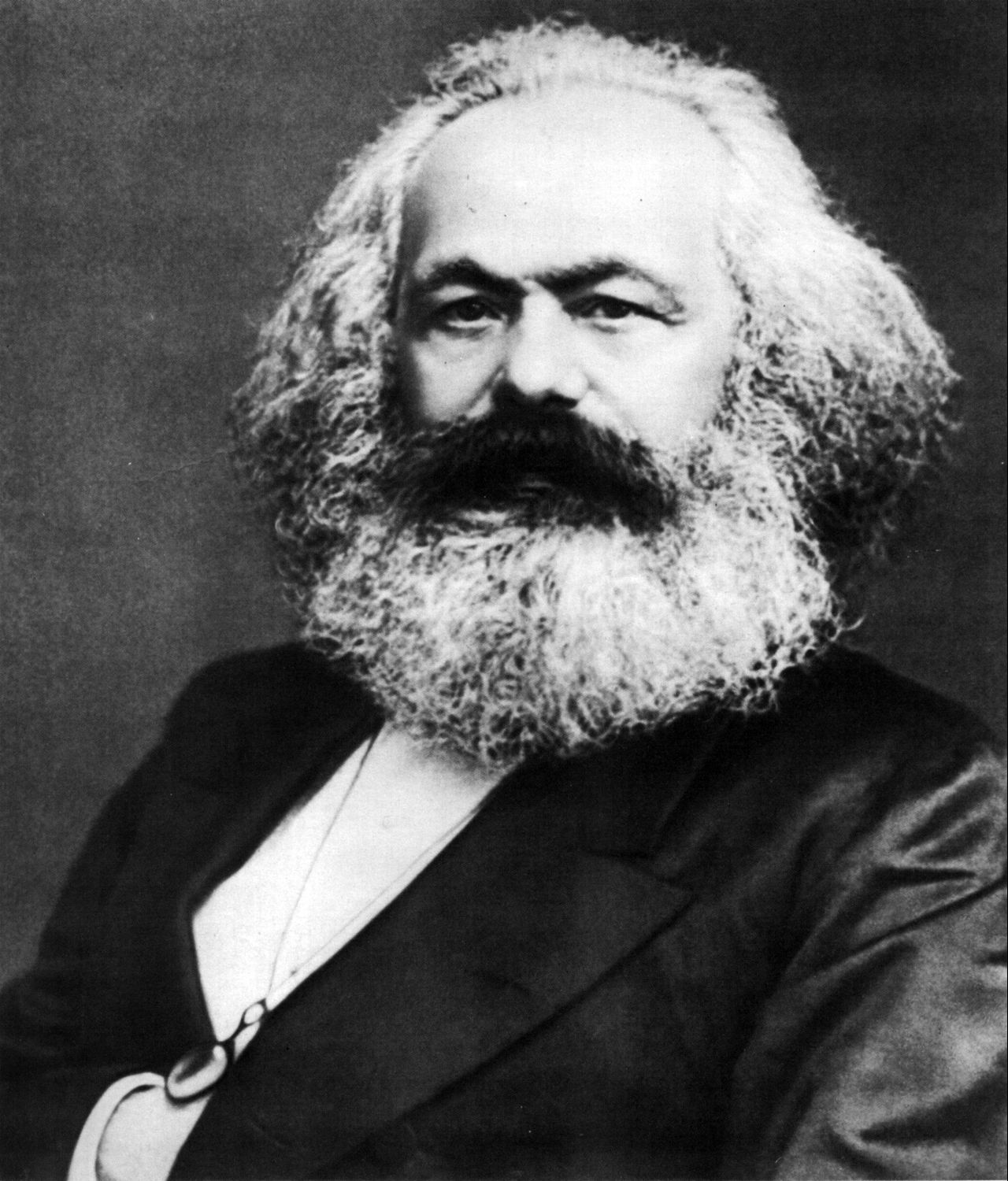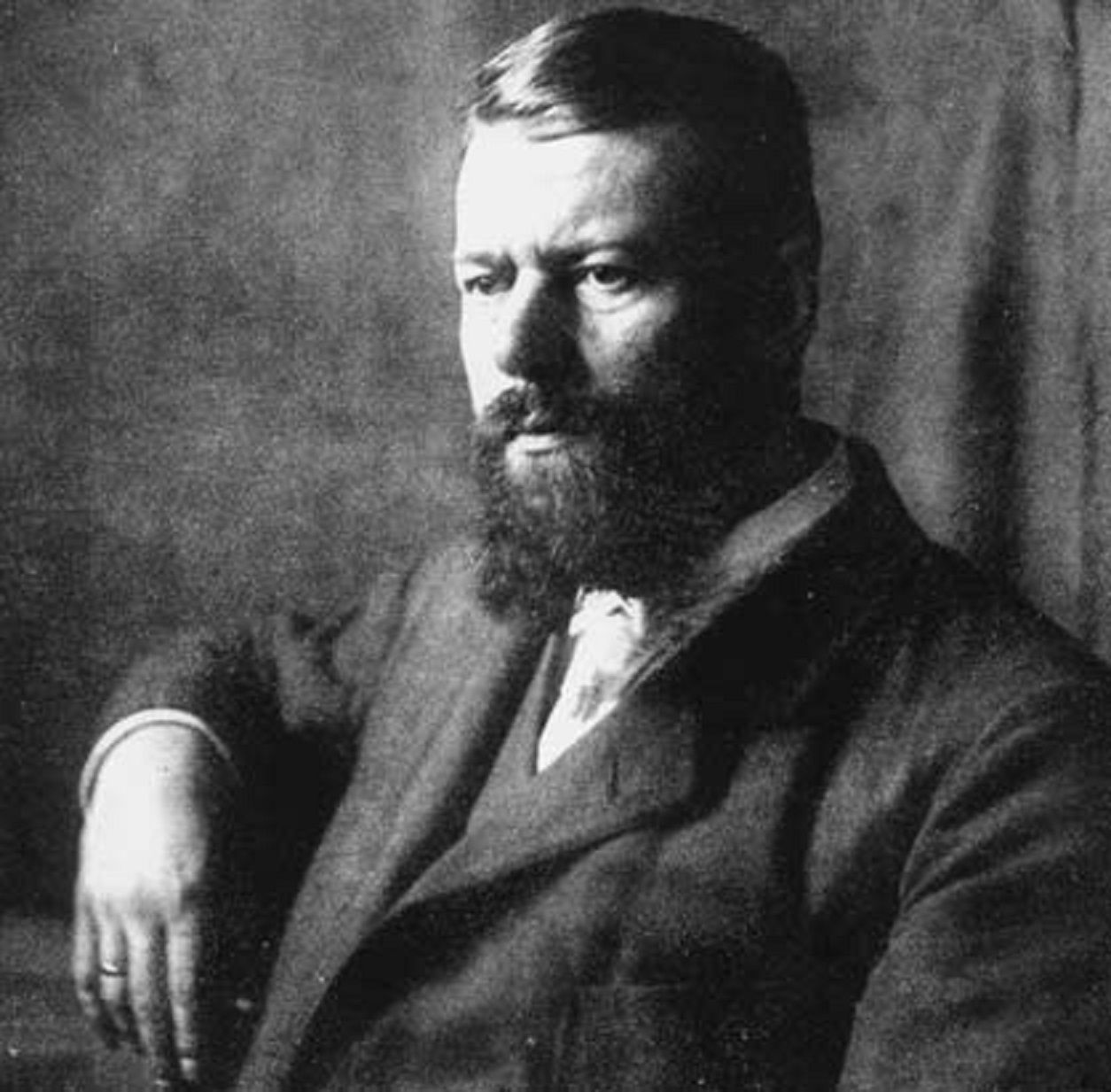The founders of Sociology part 2: Karl Marx and Max Weber


Karl Marx
When he was a young man, Karl Marx (1818- 1883) ‘s political activities resulted into conflict with the German authorities, and after a brief stay in France, he settled permanently in exile in Britain, where he observed the growth of factories and industrial production as well as growing inequalities.
His socialist ideas were reflected in his writings and much of his work concentrated on political and economic issues. He connected economic problems to social institutions and his work was too rich in sociological insights. Marx’s primary focus was on the development of Capitalism: a system which contracts with all previous economies.
Marx identified two main elements of capitalism.
Capital; any asset, including money, machines and factories, that can be invested in to make future assets.
Wage-Labour; the pool of workers who do not own any businesses or means of production but must find employment.
As industrialization spread, a large number of serfs who had once supported themselves by
working the land, moved to expanding cities and helped form an urban industrial working class, which Marx called Proletariat. Marx’s Theory was a conflict theory ( Political and Economic Philosophy ) because it states that society is in conflict of each other and Karl Marx says that this conflict is between the rich and the poor. Although capitalists and workers are dependent on each other, capitalists need labour, and the workers need wages. This dependency is unbalanced. Workers have little to no control over their labour, while employers are able to generate profit by paying workers less than their worth. Marx saw these conflicts between classes as the motivation for historical development, as he puts it, they are the ‘motor of history’.
According to Marx, there have been a series of stages, starting with ‘primitive communist’ societies of hunters and gatherers and passing through ancient slave-owning systems and feudal systems with land-owners and peasant-farmers.The emergence of a capitalist class displaced the landed nobility and capitalists overthrown the feudal order and so too would the capitalists soon be overthrown by the bourgeoisie (working class).In spite of the spread of capitalism worldwide, the working-class revolution that Marx looked forward to seems further away today than it did in Marx’s own time.

Max Weber
Like Marx, Weber (1864-1920) was not just a sociologist; his interests ranged across many areas. His work covered economics, law, philosophy and comparative history as well as sociology. He too was concerned with the development of capitalism and how modern societies differed from earlier ones.
In a series of studies, Weber identified key issues that remain central to Sociology today. In his view, economic factors are important, but ideas and values can also bring about social change. His much-discussed work, The Protestant Ethic and Spirit of Capitalism (1904-5) proposed that religious values, especially those associated with Puritanism, were of fundamental importance in creating a capitalistic outlook. Unlike other earlier sociologists, Weber argued that sociologists should study social action. (the subjectively meaningful actions of people that are oriented towards others) It is the job of sociology to understand the meaning of all those individual actions.
An important element in Weber’s sociological perspective is the ideal type. Ideal types are models created to alert us to some social circumstance and help us make sense of it. We can use ideal types to analyze real-world instances of political violence such as the IRA in Northern Ireland, ETA in Spain, the Red Brigades in Italy and the global networks of Al-Qaeda. We can note that all these groups operate outside mainstream politics; they use violence as a weapon against the state and often target civilians to demonstrate their power. Although all four groups are different, (IRA-an Irish nationalist group. ETA-a Basque separatist organization, Al-Qaeda- a global Islamic group) using ideal type, we accommodate the differences and also recognize the shared features to be described as ‘terrorist groups’. By ‘Ideal’ types, Weber meant ‘pure/one-sided’ forms of real occurrence.
Weber saw the emergence of modern society as accompanied by important shifts in patterns of social action. People were moving away from beliefs grounded in superstition, religion, custom and long-standing habit. Instead, they engaged in rational, instrumental calculation that concerned efficiency and future consequences of the action.
The emergence of science, modern technology and bureaucracies was described by Weber as rationalization- the organization of social life according to principles of efficiency and on the basis of technical knowledge. Modern society was marked by the rationalization of politics, religion, economic activity and even music and Weber had major concerns about the outcome of the rationalization process.
Weber feared that bureaucracy (a system of government in which most of the important decisions are taken by state officials rather than by elected representatives.) which is the most efficient form of administration, would imprison individuals in a ‘steel-hard cage’ from which there would be little chance of escape. This form of domination could crush the human spirit by over-regulating every aspect of life. For Weber, the Age of Enlightenment (age of scientific progress, wealth and increasing happiness) also brought new dangers.
Quote of the day people!

Comments



